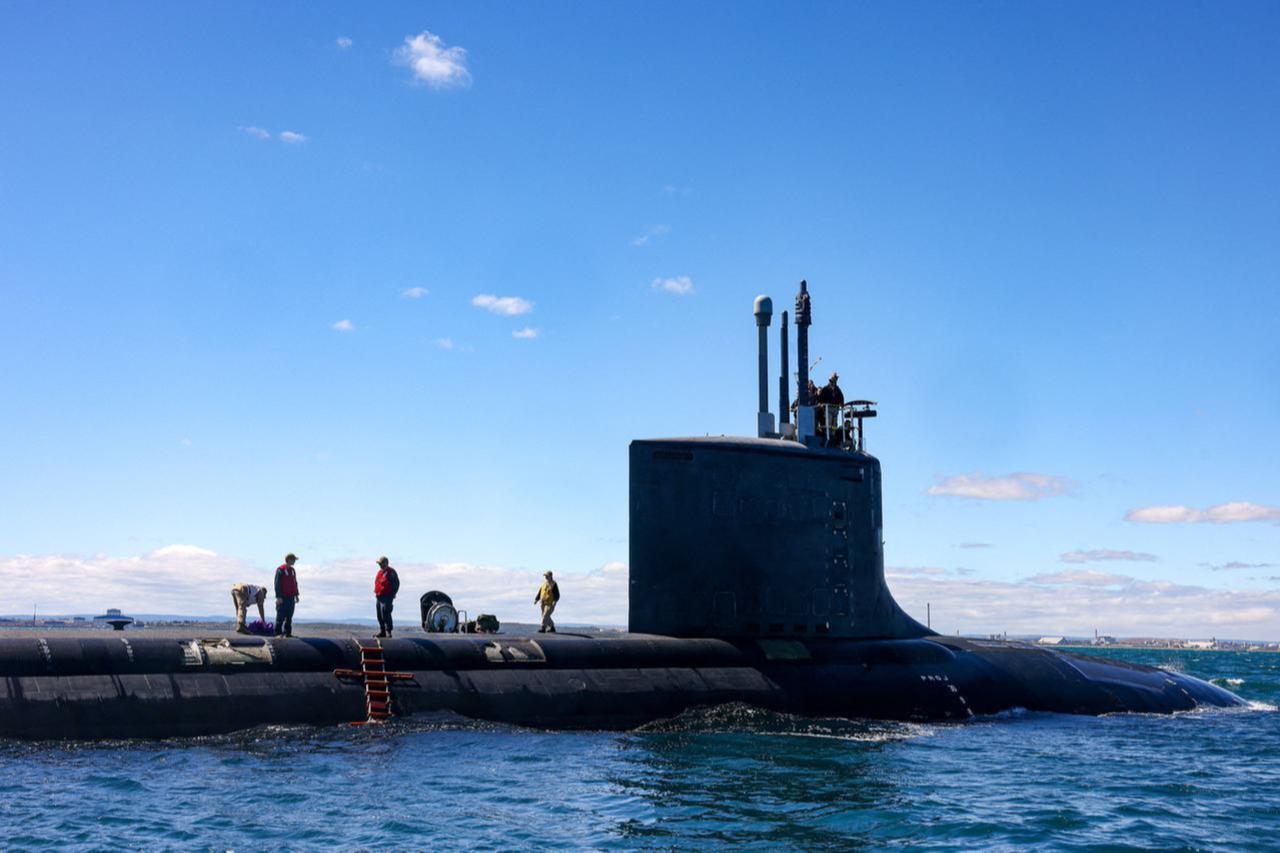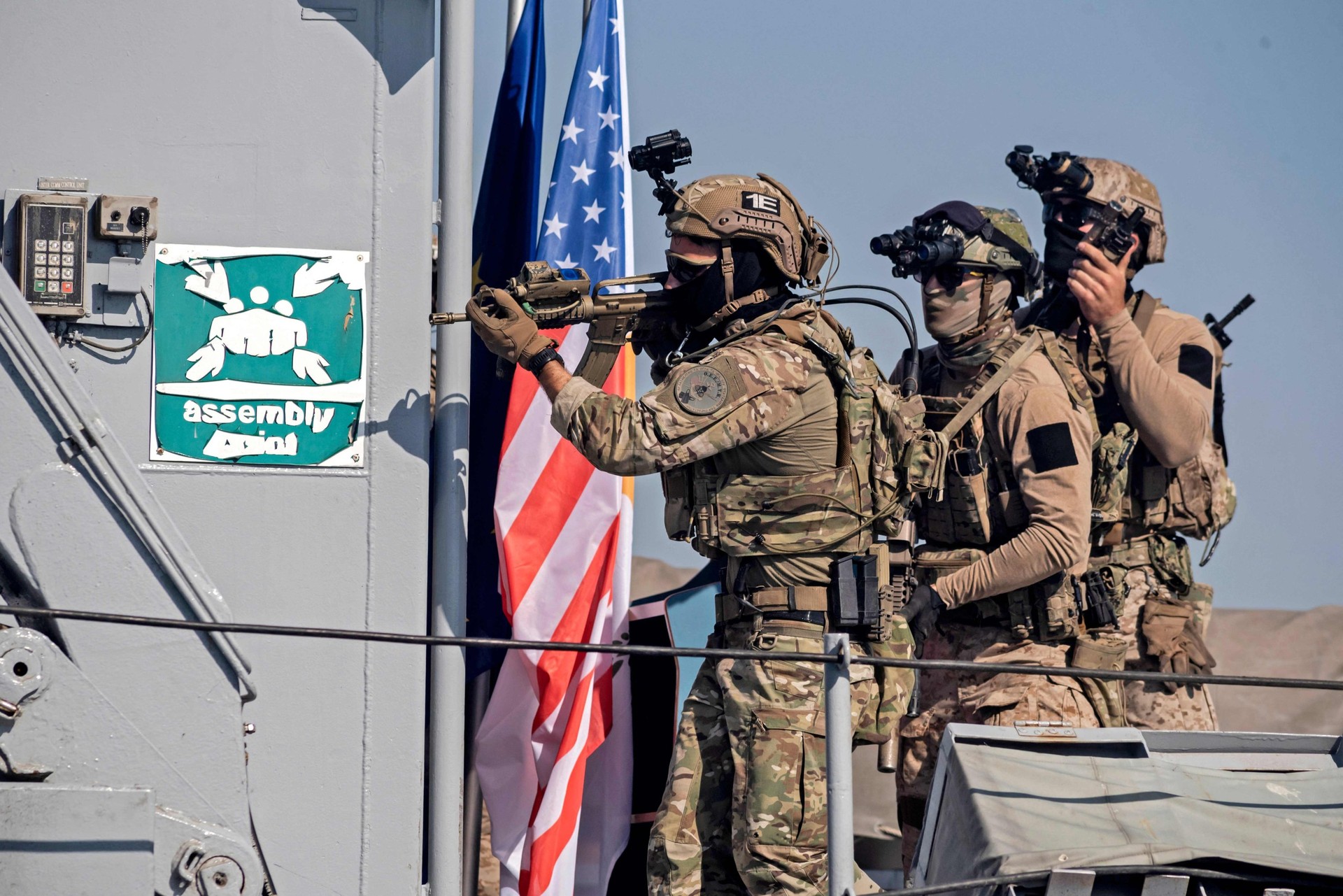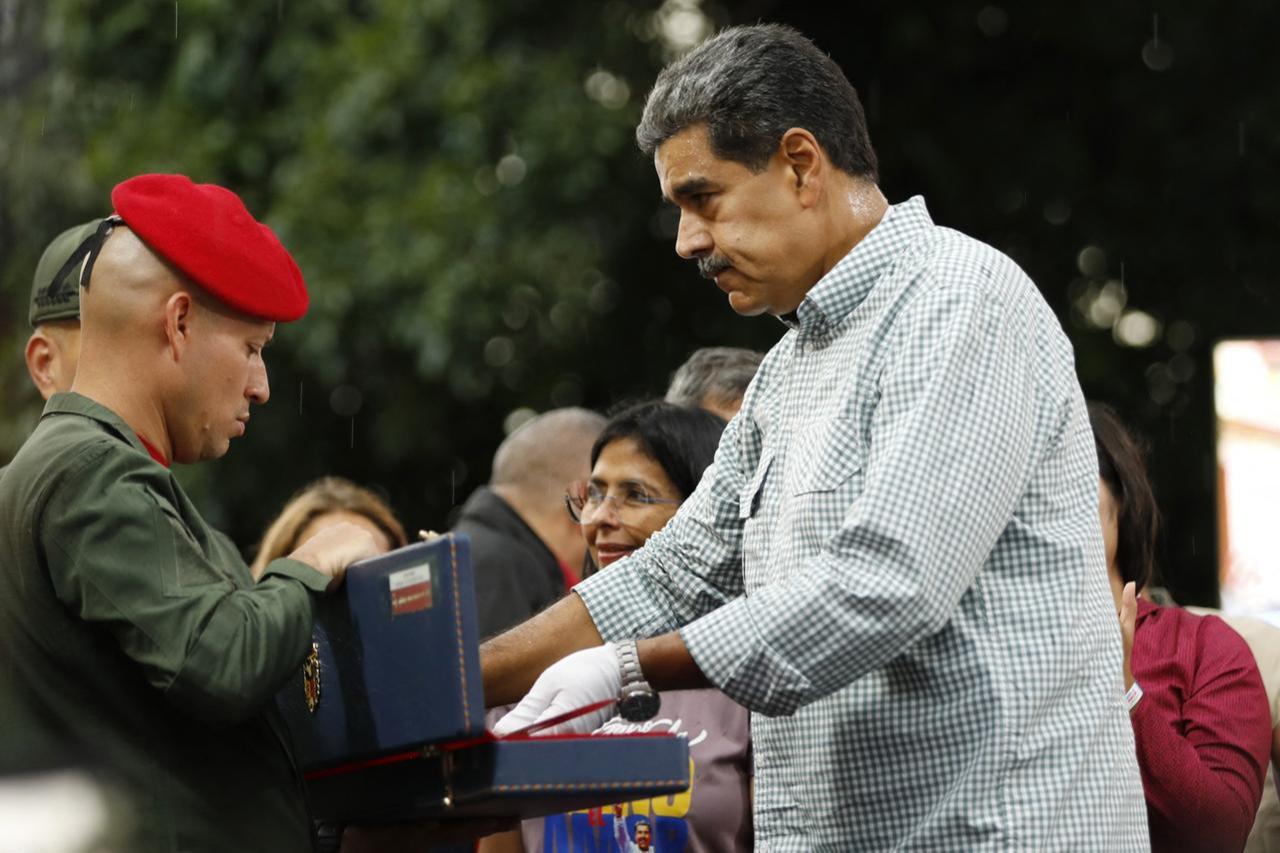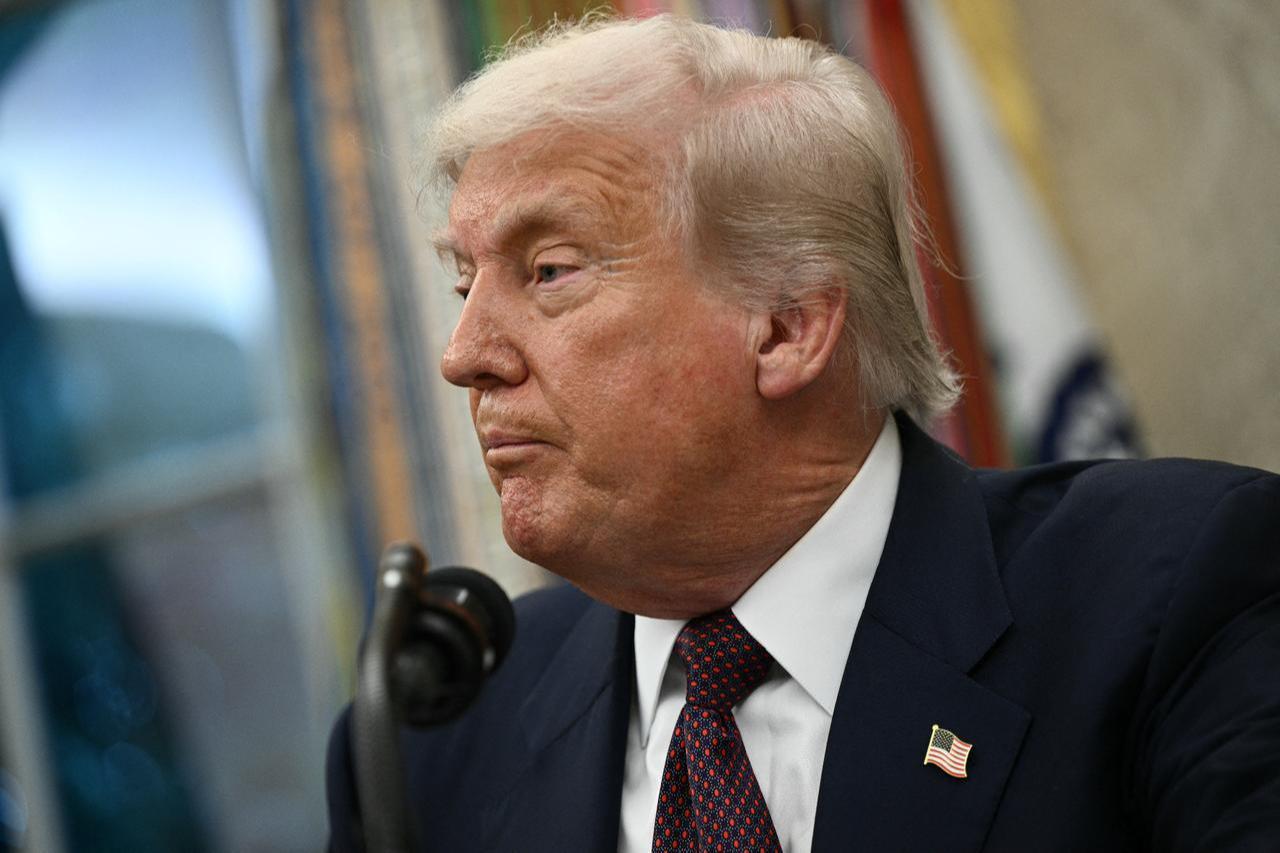
A U.S. guided missile cruiser transited the Panama Canal late Friday as tensions between Washington and Caracas reached new heights, with the Trump administration deploying seven warships near Venezuelan waters while courts blocked efforts to deport hundreds of thousands of Venezuelans from American soil.
The USS Lake Erie, a 567-foot cruiser displacing 9,800 tons, was observed crossing from the Pacific to the Caribbean at approximately 9:30 p.m. Friday, according to AFP journalists who witnessed the vessel navigating through one of the canal's locks.
The San Diego-based warship had been moored for two days at the Port of Rodman before continuing east toward the Atlantic.
"I didn't know the ship was going to pass... I was surprised," Alfredo Cedeno, a 32-year-old health technician who photographed the cruiser's transit, told Agence France-Presse (AFP).

Lake Erie's movement comes as President Trump has ordered a substantial naval force to Venezuelan waters, officially described as an anti-drug trafficking operation.
The deployment includes seven warships carrying 4,500 personnel, featuring three guided-missile destroyers, at least one attack submarine, and 2,200 marines.
However, administration officials acknowledged uncertainty about the mission's ultimate objectives to Axios.
"This is 105% about narco-terrorism, but if Maduro winds up no longer in power, no one will be crying," said one Trump administration official familiar with policy discussions.
Another official drew comparisons to historical precedent: "This could be Noriega part 2," referencing the 1989 U.S. military operation to capture Panamanian President Manuel Noriega on drug trafficking charges.
Press Secretary Karoline Leavitt emphasized Thursday that Washington considers Venezuelan President Nicolas Maduro the "fugitive head of (a) drug cartel" rather than Venezuela's legitimate president.
The administration has doubled the bounty for Maduro's capture to $50 million, announced Aug. 7—one day before Trump ordered military action against Latin American drug cartels.

Caracas has responded with its own military preparations. Venezuela announced Monday the deployment of 15,000 security forces to the Colombian border for anti-drug operations, followed Tuesday by plans to patrol territorial waters with drones and naval vessels.
Maduro claimed to have mobilized more than four million militia members against U.S. "threats," declaring Friday: "What they're threatening to do against Venezuela—regime change, a military terrorist attack—is immoral, criminal and illegal."
Colombian President Gustavo Petro, Maduro's leftist ally, defended the Venezuelan leader Monday on social media, stating, "The Cartel of the Suns does not exist; it is the fictitious excuse of the extreme right to overthrow governments that do not obey them."
Petro subsequently announced an increased military presence along Colombia's Venezuelan border.

Simultaneously, U.S. courts have blocked Trump administration efforts to strip legal protections from approximately 600,000 Venezuelans living in the United States.
A three-judge panel from the 9th U.S. Circuit Court of Appeals unanimously upheld a lower court ruling Friday, maintaining temporary protected status (TPS) for Venezuelan nationals.
"In enacting the TPS statute, Congress designed a system of temporary status that was predictable, dependable, and insulated from electoral politics," said Judge Kim Wardlaw.
"Plaintiffs have demonstrated that they face irreparable harm to their lives, families, and livelihoods."
U.S. District Judge Edward Chen previously criticized the administration's TPS termination plans in March, saying the policy "smacks of racism" and mischaracterizes Venezuelan nationals as criminals.
The United States grants TPS to foreign citizens unable to safely return home due to war, natural disasters, or other extraordinary conditions.
Former U.S. President Biden extended Venezuelan TPS for 18 months just before Trump's January inauguration, citing ongoing crises under Maduro's rule.
According to the Pew Research Center, Venezuelans comprise the largest group among 1.2 million people eligible for or receiving TPS as of March 2024.
The Trump administration has also moved to revoke protections for Afghans, Cameroonians, Haitians, Hondurans, Nepalese, and Nicaraguans, with those decisions facing similar court challenges.
Trump previously attempted to end the TPS program during his first presidency but faced legal obstacles.
The Supreme Court allowed temporary TPS termination for Venezuelans in May while appeals proceedings continued. The administration is expected to appeal Friday's 9th Circuit ruling to the Supreme Court.
Administration sources suggest the current Venezuela policy reflects Secretary of State Marco Rubio's influence, viewing Maduro's regime as Cuban-supported while Venezuela provides Cuba with subsidized oil.
Officials speculated about potential military actions ranging from boat interdictions to airstrikes on suspected cartel facilities, though most privately consider invasion unlikely.
"You can only imagine how bewildered Latin Americans are watching this drama unfold," said Michael Shifter, a Georgetown University professor specializing in the region.